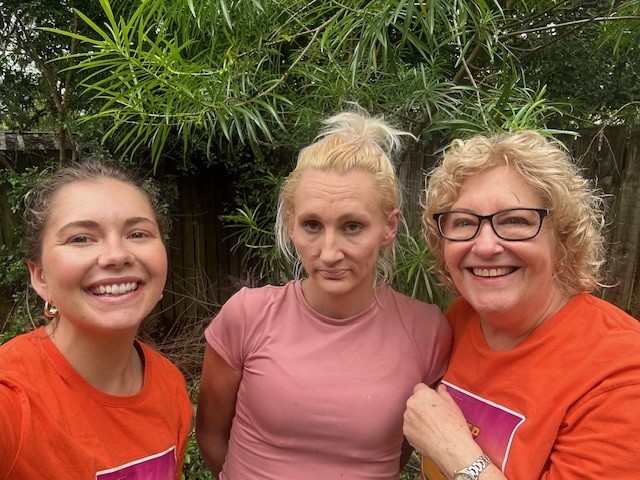Kiara’s Unexpected Diagnosis: How a Liver Scan Changed Everything
When Kiara visited Lives Lived Well, a rehabilitation service, she was focused on her journey to recovery. She didn’t expect, however, that a pop-up hepatitis C clinic run by Hepatitis Queensland would uncover a hidden health issue.
At the time, she was convinced she didn’t have hepatitis C and thought she’d get a liver scan simply to make up the numbers. But when Hepatitis Queensland’s Community Outreach Nurse, Jeanette, did the FibroScan®, Kiara learned her liver was inflamed.
A quick antibody test—a simple finger-prick to check if her body had ever encountered the virus—came back positive. That afternoon, a follow-up test called a PCR, confirmed the virus was active in her blood. “I never in a million years would have thought I had hepatitis C. I was so thankful for Hepatitis Queensland’s service,” she says.
Jeanette arranged for Kiara to speak with a doctor, who called to discuss her treatment options. Within a week, she had a prescription ready, starting her on the path to cure.
Living with an Invisible Condition
Looking back, Kiara recalls having some back pain, which she attributed to scoliosis. Now, she wonders if it was her liver showing signs of strain.
Other than that, she had no symptoms and no clue of what was happening inside her body. “I thought, ‘How the hell did I get it?’ I’ve never used needles, so it just didn’t make sense,” Kiara reflects.
Jeanette explained that hepatitis C is a blood-borne virus, meaning it spreads through blood-to-blood contact. This can happen even through shared personal items like toothbrushes or razors if they carry traces of hepatitis C-positive blood—a fact Kiara wishes she’d known sooner.
Despite the initial shock and confusion, Kiara feels grateful. “If I hadn’t been at Lives Lived Well that day, I might have found out when it was too late when the damage was irreversible,” she says.
The experience made her realise the importance of regular testing and awareness about all the ways hepatitis C can spread.

Life After Treatment: Renewed Health and Advocacy
Kiara’s treatment to cure her from hepatitis C, just daily tablets for eight weeks, went smoothly. “I had no side effects whatsoever,” she says. “As time went on, I started feeling better and had more energy. Knowing I was doing the treatment helped me mentally, too. I thought, ‘It’s going to be okay. At least I can treat it now before it’s too late.’”
When Kiara got the call confirming she was free of hepatitis C, relief washed over her. “I felt so lucky,” she says. Today, she’s deeply appreciative that her condition was caught early, allowing her to remain healthy and present for her son. “I’m just forever grateful that it was picked up early, and I didn’t suffer any long-term effects,” she adds.

Raising Awareness: Hepatitis C Testing and the 2030 Elimination Goal
Kiara believes more people need to know about hepatitis C testing and that anyone could be at risk. “It’s rare to catch it in other ways, but it does happen. There needs to be more testing clinics in every suburb and more awareness about transmission,” she says. In her view, making testing more accessible and encouraging parliament members to raise awareness could play a big part in reaching the 2030 hepatitis elimination goal.
Her Message to Others
Reflecting on her journey, Kiara wants to reassure others facing hepatitis C. “People shouldn’t be embarrassed or feel ashamed. They should be proud they’ve taken the steps to get tested; if they’re positive, it’s easy to get cured. It stops the spread,” she says.
Her advice? “It takes two minutes to get tested. You could be around to see your kids and grandkids grow up. We’re so lucky to have the healthcare system we do in Australia—it’s not like this in every country. If you’re positive, early detection can save your life.”
Kiara’s story reminds us that a simple test can make all the difference. Thanks to early detection and effective treatment, Kiara is living hepatitis C-free, healthier and more hopeful than ever.

